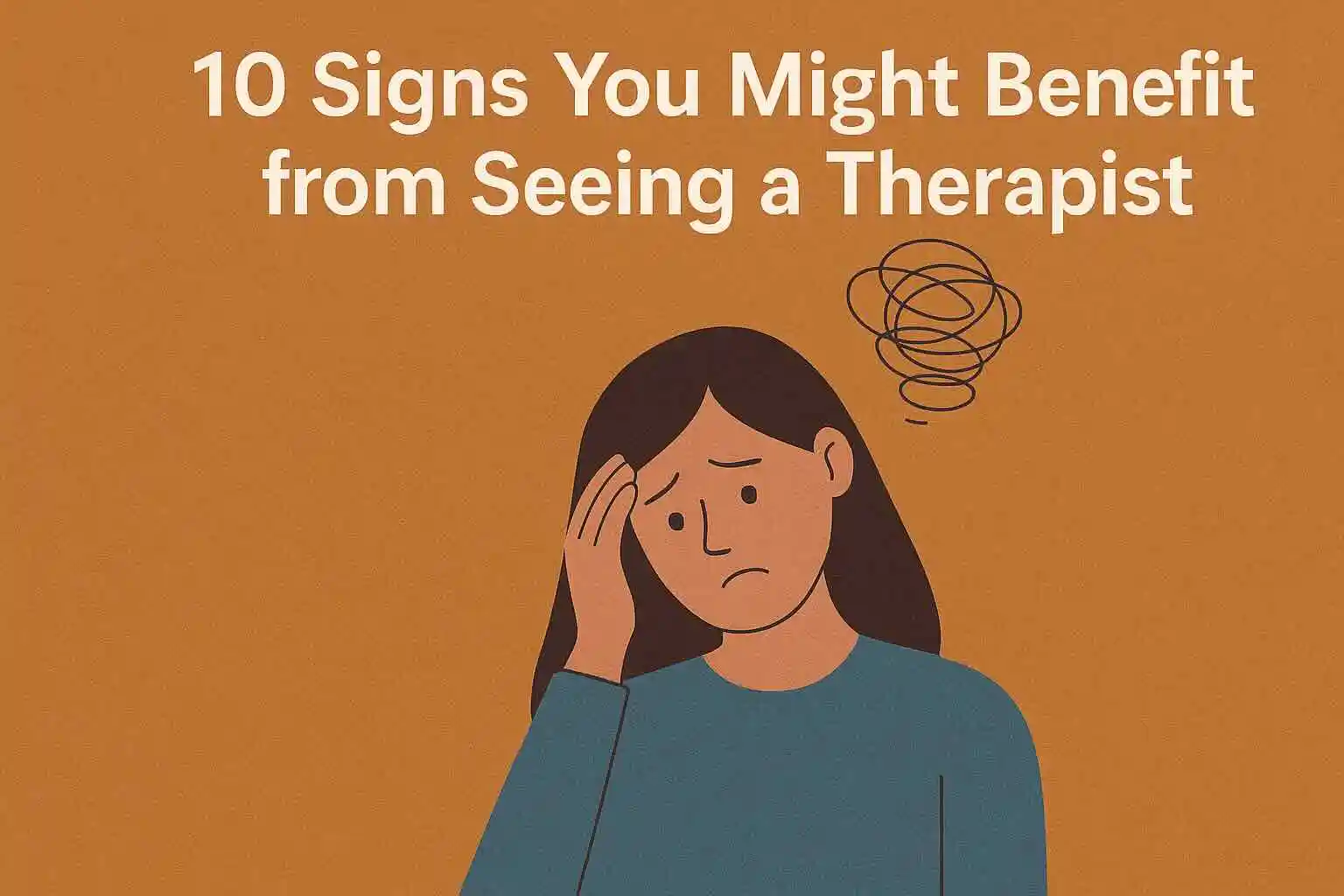TL;DR
If you’re feeling persistently stressed, anxious, sad, overwhelmed by emotions, or stuck in unhealthy patterns—or if you simply want to improve your mental well-being—consider therapy. Early intervention is proven to boost resilience and happiness, and there’s no need to wait for a crisis to get help.
Recognizing you might need therapy is a strong and positive step toward improving your mental health. Therapy can help anyone—not just those in crisis—develop tools for coping, growing, and thriving.
Here are ten common signs it may be the right time to consider seeing a therapist:
1. You Feel Overwhelmed by Stress
If daily stress feels unmanageable—whether from work, relationships, or life responsibilities—a therapist can help you develop strategies to cope and prevent burnout. 1
2. You’re Struggling with Anxiety or Depression
Persistent anxiety or low mood, loss of interest, insomnia, or feelings of hopelessness may signal depression or anxiety disorders. Therapy offers support and techniques that have been shown to significantly reduce these symptoms and improve quality of life. 2
3. Difficulty Managing Emotions
If you notice mood swings, frequent anger, sadness, or worry without clear reasons, therapy can help you understand your emotions and regulate them more effectively.
4. Facing a Major Life Transition
Transitions like a new job, move, break-up, or bereavement can be destabilizing. Therapy offers guidance and support to help you adapt and grow through change.
5. Feeling Lonely or Isolated
Even with people around you, ongoing loneliness or a sense of disconnection can impact your health. Therapy helps explore the roots of isolation and rebuild meaningful connections.
6. Relationship Difficulties
Frequent conflicts, communication issues, or stress in relationships—whether romantic, family, or social—are a common reason to seek therapy and learn healthier interaction patterns.
7. Relying on Unhealthy Coping Mechanisms
If you find yourself turning to substances, overeating, shopping, or other risky behaviors to manage emotions, therapy helps you identify underlying causes and creates space for healthier coping skills.
8. Feeling Stuck, Unfulfilled, or Hopeless
A sense of being “stuck,” aimless, or unmotivated can limit your growth and satisfaction. Therapy helps clarify your goals and explore what’s holding you back.
9. Physical Symptoms with No Clear Cause
Chronic headaches, stomach pain, fatigue, or other physical symptoms—when medical explanations fall short—can be linked to emotional health. Therapy may uncover and address these mind-body effects.
10. Desire for Personal Growth
You don’t need a crisis to benefit from therapy. If you want to better understand yourself, achieve personal growth, or proactively support your mental health, therapy is a powerful resource.
When Should You Seek Therapy?
If any of these signs are familiar—and especially if they affect your daily life or relationships—see a mental health professional. You don’t need to “hit bottom” or have a diagnosis to benefit.
Seeking help is a sign of strength. Early support can make it easier to recover, build resilience, and thrive.
If you’re ready to take the first step, find a licensed therapist or explore evidence-based digital therapy platforms for flexible and stigma-free support.







